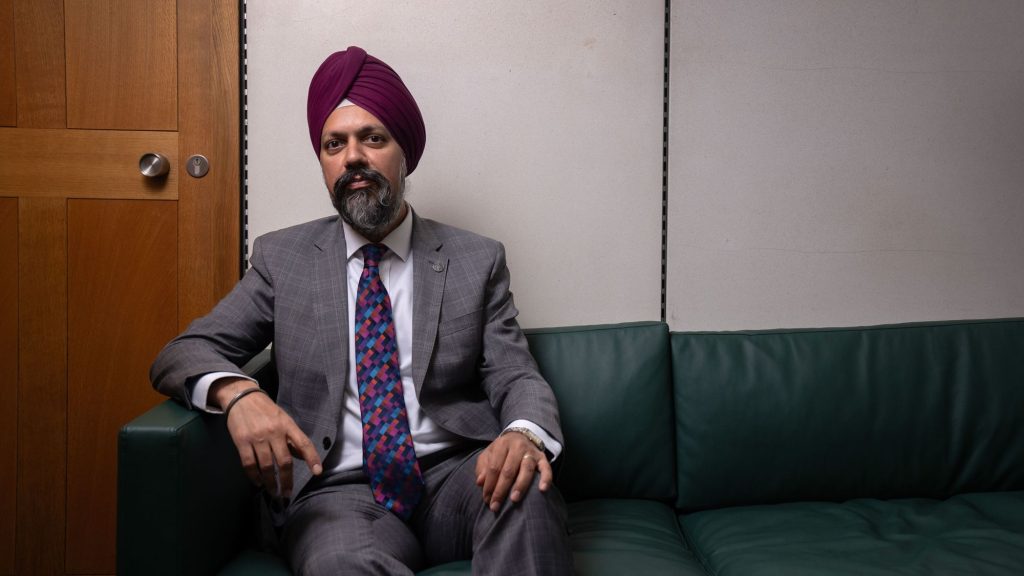UK Defence Readiness Under the Microscope
In a stark warning to the nation, Tanmanjeet Singh Dhesi, Chair of the House of Commons Defence Select Committee, has declared that the United Kingdom “is not in a state of readiness” for conflict. Speaking with a sense of urgency, Dhesi emphasises that neither the armed forces nor the public are adequately prepared for threats ranging from conventional warfare to sophisticated cyber-attacks. With tensions high in Europe and the Middle East, the Committee Chair insists the Prime Minister must spearhead a national conversation on elevating the country’s defence posture.
An Array of Emerging Threats
From renewed hostilities in Europe to precarious ceasefires in the Middle East, the strategic landscape has grown increasingly volatile. Dhesi points out that the UK now ranks third globally in terms of cyber-attack frequency, with an average of 90,000 attempts on Ministry of Defence systems alone over the past two years. While many of these incursions are thwarted, recent incidents—most notably the highly publicised breach at Jaguar Land Rover—demonstrate the real danger posed to critical infrastructure and the wider economy.
Moreover, “grey zone” tactics—state-sponsored activities that fall short of open warfare—have proliferated. These include disinformation campaigns, sabotage of supply chains, and covert drone incursions. Dhesi argues that a “whole-of-society” approach, akin to Estonia and Finland’s model, is essential to counter these sub-threshold threats, building resilience not only within defence circles but also across private industry and local communities.
The Afghan Data Breach: A Case Study in Secrecy
The Defence Committee is also probing the February 2022 Afghan resettlement data leak, revealed only this summer after a two-year super-injunction was lifted. Personal information of 18,700 Afghans and their families—many relocated under “Operation Warm Welcome”—remained under wraps, hampering transparency and scrutiny. Dhesi has launched an inquiry into whether senior figures, including former ministers, misused legal powers to suppress public knowledge of the breach.
Among the written testimonies, 49 affected individuals reported family members killed as a direct result of the leak. Dhesi underscores that while national security sometimes demands discretion, indefinite secrecy erodes democratic accountability. The Committee plans to question officials on any role played by then-Prime Minister Boris Johnson, the Defence Secretary, and the Attorney General in sustaining the super-injunction.
Lessons from Ukraine: Speed and Adaptability
Earlier this year, the Defence Select Committee sent a cross-party delegation to Kyiv to study Ukrainian defence reforms. Spending two days in the field, MPs met senior military officials and observed frontline brigades deploying rapidly acquired drones and anti-tank weapons. Dhesi praises Ukraine’s streamlined procurement processes, which can deliver essential equipment to troops in as few as five days—contrast that with the UK’s multimonth lead times for standard kit orders.
This agility, he notes, is crucial in modern conflict where “David vs. Goliath” scenarios demand swift adaptation. Back in Westminster, the Committee is evaluating whether the British procurement model—plagued by red tape and slow decision-making—can be reformed to give greater authority to front-line commands and smaller defence firms.
Boosting Industry and Skilled Workforce
While the UK has committed to investing five percent of GDP in national security by 2035, Dhesi warns that funding alone is not enough. The Ministry of Defence must address a shortage of skilled workers—welders, electronics technicians, and software engineers—by investing in apprenticeships and supporting small and medium-sized enterprises (SMEs).
Currently, large aerospace and defence primes can withstand procurement delays, but SMEs—key drivers of innovation—are struggling with late payments and cashflow crunches. Dhesi urges ministers to enforce timely settlements and to introduce “SME set-asides” similar to US Department of Defense programmes, boosting cutting-edge research in autonomous systems, cyber-defence, and unmanned platforms.
Raising Public Awareness
Central to Dhesi’s message is the need for public engagement. He argues that the government must elevate Britain’s threat profile in the national discourse, not just within Whitehall. “Civilians must understand that a war footing isn’t a doomsday scenario but a framework for resilience—civil defence training, cyber-hygiene practices, emergency planning.”
He suggests a national “Preparedness Week,” modelled on similar initiatives in Scandinavia, featuring local exercises, cyber-security workshops, and recruitment drives for reservists. By demystifying security measures and encouraging community involvement, the UK can build a society prepared to deter and withstand future crises.
Modernising Defence for the 21st Century
Whether tackling cyber incursions, reforming procurement, or safeguarding vulnerable data, Tan Dhesi’s call to action is unequivocal: the UK must transition from rhetoric to delivery. Achieving readiness requires a transparent defence strategy, sustained investment in people and technology, and public mobilisation. As geopolitical tensions rise, Britain’s ability to protect its homeland—and to uphold democratic values—depends on the decisive steps taken today.
